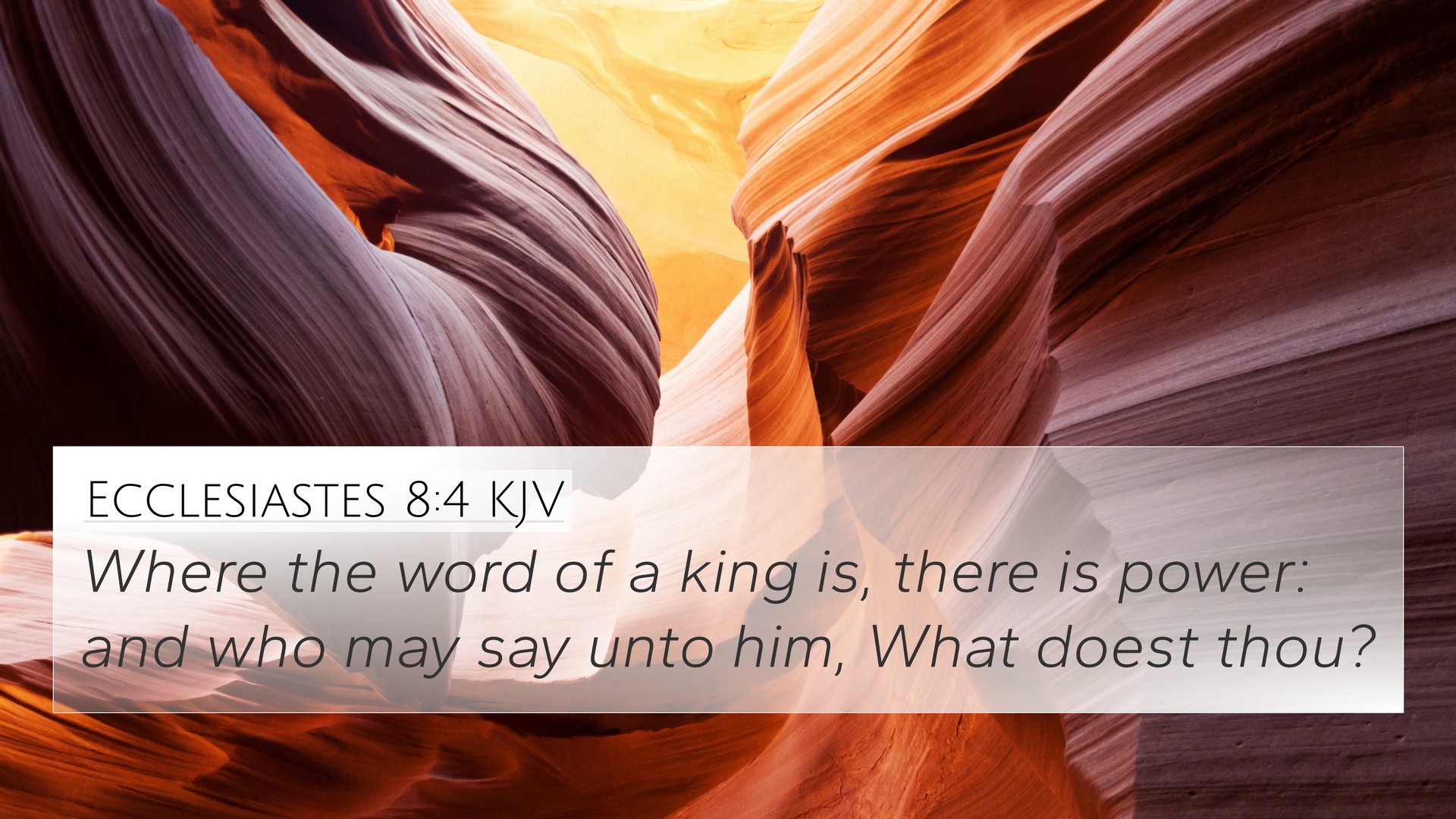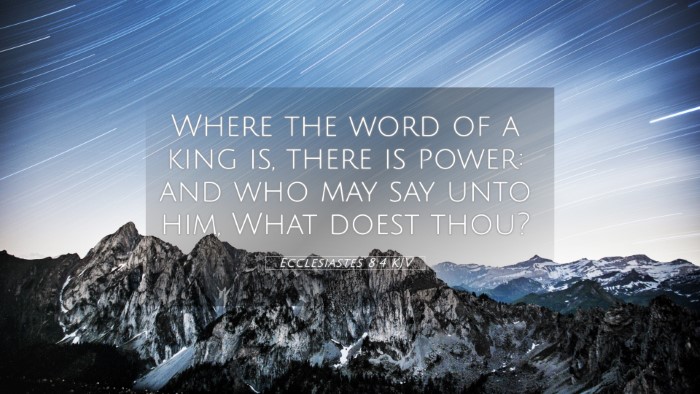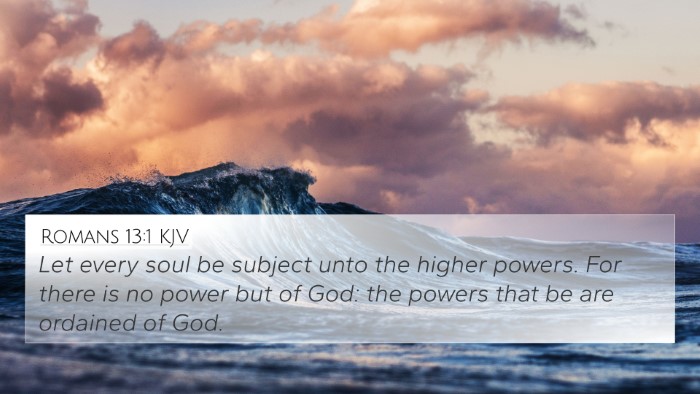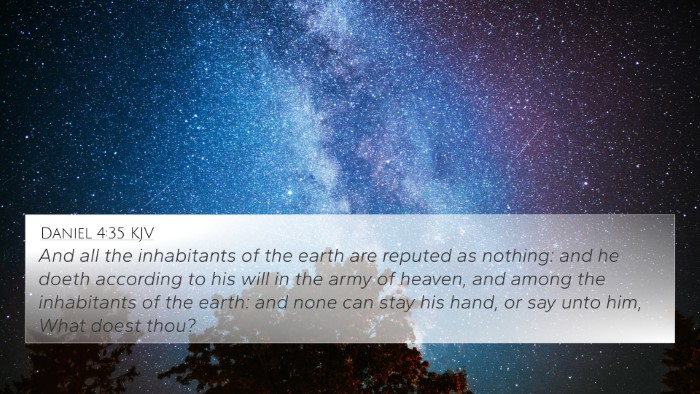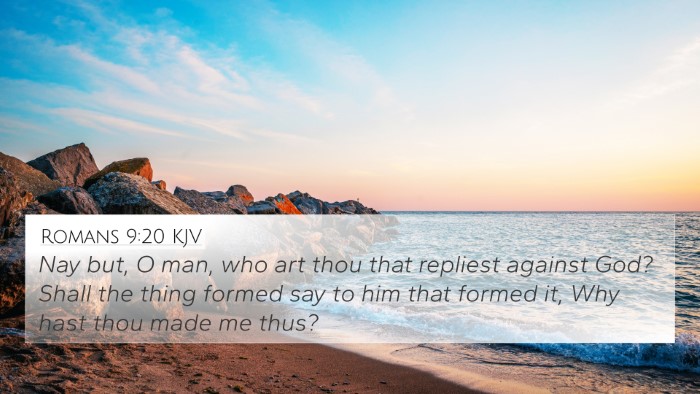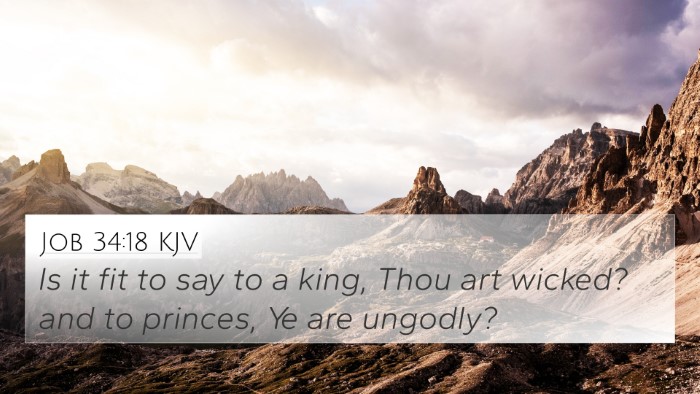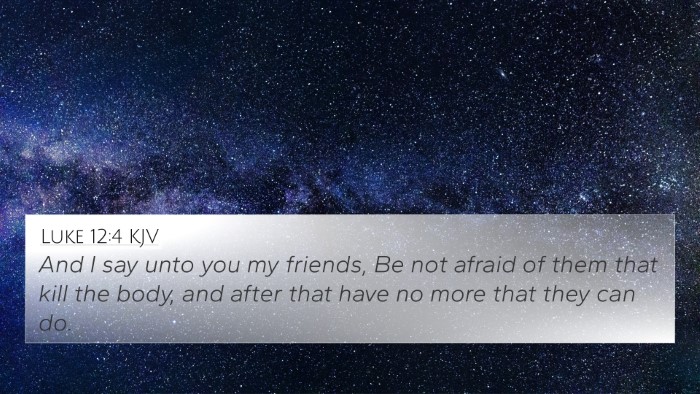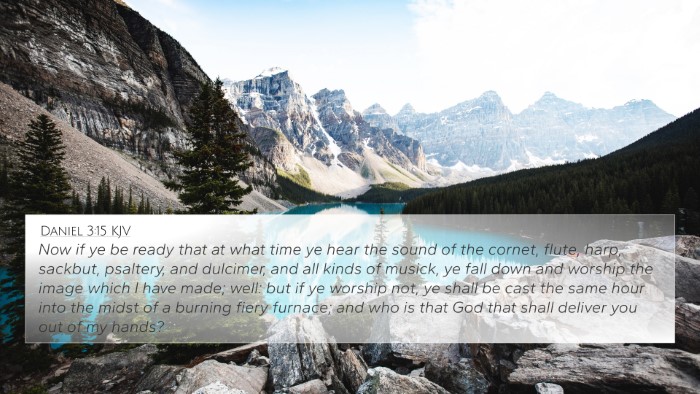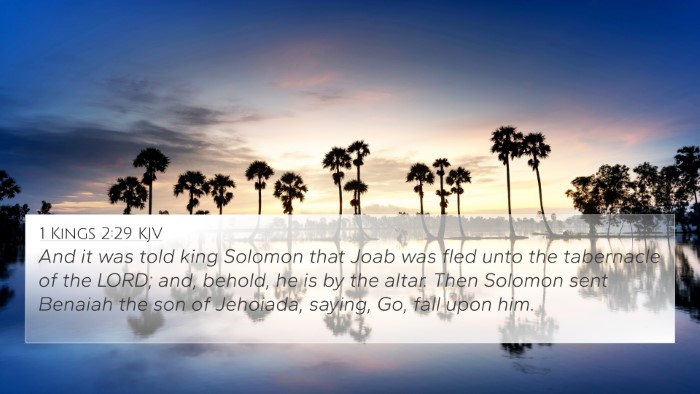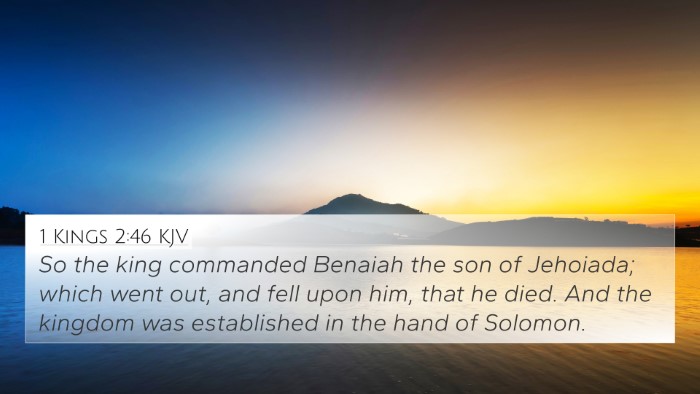Understanding Ecclesiastes 8:4
Ecclesiastes 8:4: "Where the word of a king is, there is power: and who may say unto him, What doest thou?"
The verse from Ecclesiastes 8:4 speaks to the authority of a king and the power that accompanies royal decrees. According to Matthew Henry's commentary, this reflects on the certainty and impact that a ruler’s decision can have on society and the lives of individuals. The statement implies that the commands of a king must be respected and obeyed, as questioning them may lead to dire consequences.
Albert Barnes emphasizes that this verse promotes an understanding of governance; it outlines the principles of authority and submission. In his analysis, Barnes points out that just as the king possesses the power to command, subjects are expected to obey, acknowledging the hierarchical structure established by governance.
Adam Clarke offers further insight by exploring the implications of authority. He notes that this verse indicates the unassailable nature of a king's will and the futility of opposition. The power of speech in a king's decree carries weight, and the consequences of such authority affect the moral and ethical responsibilities of rulers and subjects alike.
Connections to Other Bible Verses
Ecclesiastes 8:4 can be linked to several other scripture passages that discuss authority, governance, and the nature of power. Below are some relevant Bible verse cross-references:
- Romans 13:1: "Let every soul be subject unto the higher powers. For there is no power but of God: the powers that be are ordained of God."
- Proverbs 21:1: "The king's heart is in the hand of the LORD, as the rivers of water: he turneth it whithersoever he will."
- 1 Peter 2:13-14: "Submit yourselves to every ordinance of man for the Lord's sake: whether it be to the king, as supreme; or unto governors..."
- Daniel 4:17: "This matter is by the decree of the watchers, and the demand by the word of the holy ones: to the intent that the living may know that the most High ruleth in the kingdom of men..."
- Psalm 22:28: "For the kingdom is the LORD's: and he is the governor among the nations."
- Matthew 28:18: "And Jesus came and spake unto them, saying, All power is given unto me in heaven and in earth."
- Proverbs 16:10: "A divine sentence is in the lips of the king: his mouth transgresseth not in judgment."
Thematic Bible Verse Connections
This verse highlights themes of authority and obedience, which resonate throughout the Scriptures. It opens up avenues for exploring:
- The relationship between God's sovereignty and earthly authority.
- How human governance reflects divine principles of order.
- The moral accountability of leaders and their subjects.
- The implications of questioning authority in both temporal and spiritual realms.
Cross-Referencing Bible Study
For those engaged in cross-reference Bible study, Ecclesiastes 8:4 offers rich material for comparative analysis. Consider the following methods:
- Use a Bible concordance: Identify themes and keywords related to authority and power.
- Bible cross-reference guide: Look up parallel verses that discuss submission and governance.
- Theme-based study: Examine lessons on the nature of power and its ethical implications.
How to Find Cross-References in the Bible
When seeking to understand how Ecclesiastes 8:4 links with other texts, it’s vital to recognize:
- The principles of authority that stem from divine order.
- Identifying parallels in the New Testament that reiterate themes of kingship and leadership.
- Examining the implications of obedience to authority in both Testaments, illustrating a cohesive understanding of God’s plan.
Conclusion
Ecclesiastes 8:4 serves as a profound reflection on the nature of authority and the expectation of obedience, offering a foundational principle for understanding governance in both spiritual and temporal contexts. Through thematic connections and comprehensive cross-referencing, readers can gain deeper insight into the dynamics of power as presented throughout the Scriptures.
